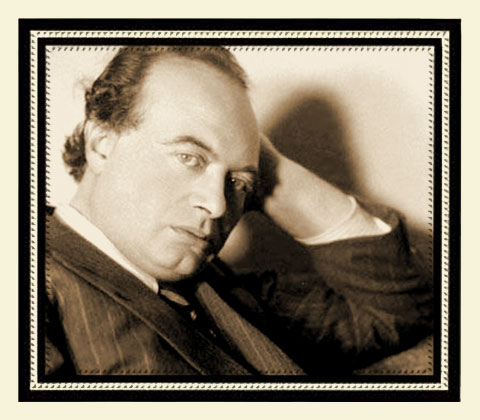Prague, 1890 — Beverly Hills, USA, 1945
Writer, playwright
The son of a prosperous Jewish glove factory owner from Bohemia, now the Czech Republic, his childhood was marked by his nanny’s Catholic faith and by Prague’s Baroque Catholicism. He began writing poetry from an early age. In his youth had close contact with the group of writers which included Franz Kafka, Max Brod and the German publisher Kurt Wolff. His first play was published in 1910.
In Vienna, where he lived for over 20 years, he met Alma (then considered Austria’s most beautiful woman), the widow of composer and maestro Gustav Mahler who was at the time married to the famous architect Walter Gropius. They married and under her influence withdrew from public life, but travelled widely. During one journey through the Middle East in the late 1920’s, he found an orphanage in Syria with survivors of Armenian genocide at the hands of the Turks during the First World War, which inspired him to write The Forty Days of Musa Dagh, to this day considered the definitive proof of the massacre. In 1938, with the annexation of Austria by Germany, he took refuge in France with Alma. With the capitulation of France in 1940, the couple headed with thousands of other refugees to Marseille in order to reach the USA. During their escape they stopped at the sanctuary of Lourdes, where Werfel had an intense mystical experience. He vowed that if he managed to escape he would write the story of the country girl Bernardette Soubirous, who had visions of the Virgin Mary and later became a saint. The couple joined other refugees crossing the Pyrenees, among them Friderike Zweig, her daughters and sons-in-law. The group reached Spain and from there went to Lisbon, from which they finally sailed. His book The Song of Bernadette, which was an instant bestseller, soon to be made into a film which in turn was a major box office hit.
He met Stefan Zweig in Vienna during the First World War when they worked in the military archives alongside other intellectuals, among them Rainer Maria Rilke. The Werfel-Zweig correspondence, begun in 1917, continued right through to Petrópolis.
Address listed: 6900 Los Tilos Road, Hollywood, Calif. Tel. n.t.o.
